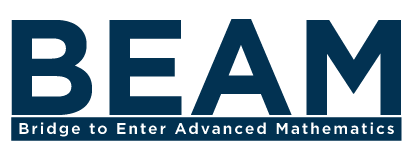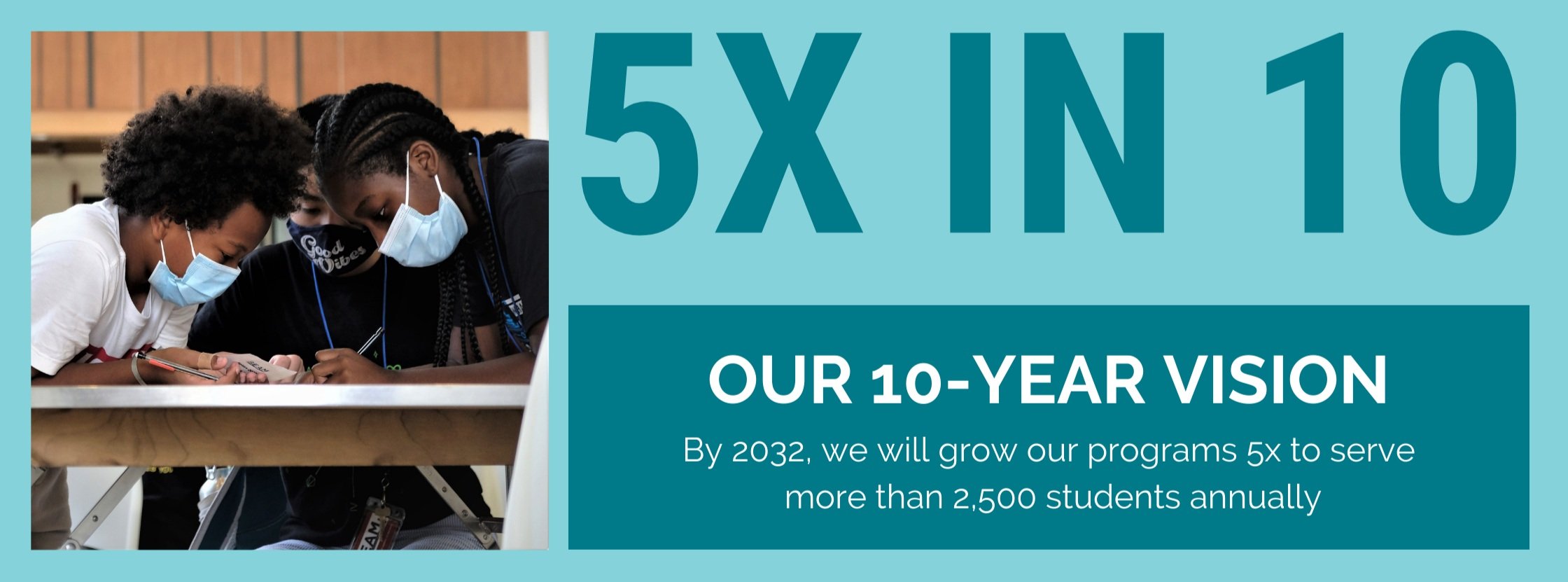Strategic Plan
Building Equity in STEM
Strategic Plan Overview
Since 2011, BEAM has been working to develop pathways for students from low-income and historically marginalized communities to become scientists, mathematicians, engineers, and computer scientists. We now support students from 6th grade through college graduation, helping them reach their potential.
As students from our first cohorts graduate college, our next step is to prepare BEAM to scale. Our strategic plan provides the foundations over the next three years so we can scale in the next ten. By 2025, we will:
update our programs with lessons learned from the past decade;
codify and formalize their implementation;
put the organizational infrastructure in place to scale quickly and with high fidelity
With funding and support from our donors, our goal is to reach five times as many students 10 years from now, and after that, the sky’s the limit.
In addition, we will continue to innovate with new approaches, such as our Entry Points program that reaches elementary school students nationwide. We’ll also continue to position ourselves as a thought leader in developing talent from underserved communities.
Changing Lives
We have proven impact
Students attend great colleges
Almost 70% of BEAM college students attend colleges ranked as “very competitive” or higher by Barron’s.
Love of math grows
After BEAM Summer Away, more than 90% of students reported increased interest in math.
Students perservere
When we asked “What’s the longest you’ve spent on a single math problem?” the median answer at the end of the summer was 2 days, an increase of more than 200% from the beginning of the summer.
Problem-solving skills grow
At Summer Away, student scores grew on a problem solving pre-test/post-test and when we asked “How much do you feel your math skills grew this summer?” (on a scale of 1 to 7), 95% of our students responded 5 or higher.
Our 3-Year Strategy
Goal 1
Align programs and metrics around BEAM’s ultimate goals: to create pathways for students to attain STEM college degrees, and to open doors to exceptional achievements
Goal 2
Strengthen and codify our longitudinal program model
Goal 3
Develop the program management tools and guides to expand in New York City, Los Angeles, and additional cities
Goal 4
Continue developing Entry Points to prepare students for a national pathway program
Goal 5
Strengthen our capacity to evaluate our programs
Goal 6
Build the organizational infrastructure to support our growth














